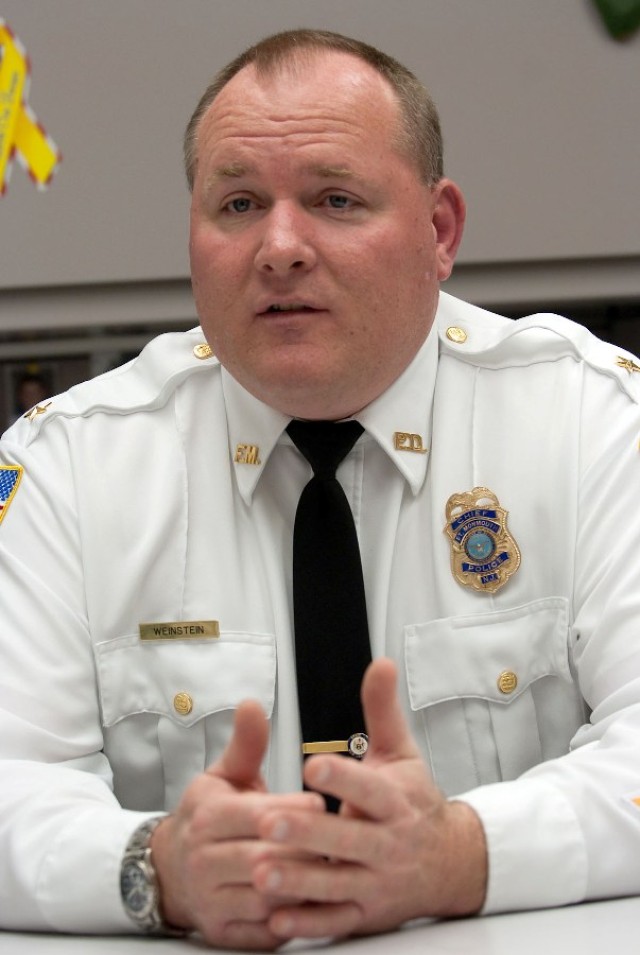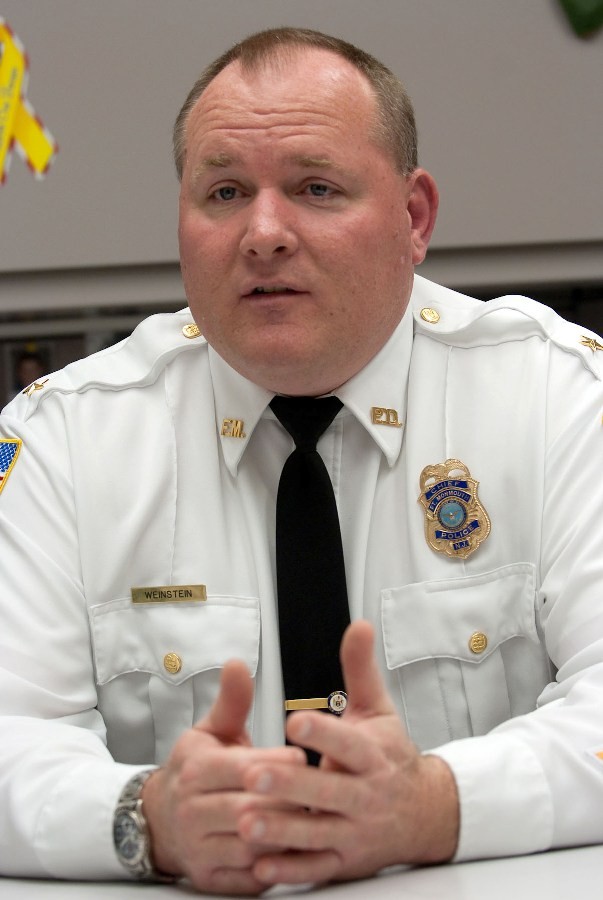FORT MONMOUTH, N. J. -- Standing well over six feet tall and needing to duck under the doorway to his office to avoid hitting his head, Fort Monmouth's Chief of Police Adam Weinstein is a formidable presence.
With a build like his, you might imagine that he was destined for a career in the military, law enforcement or the National Football League. But the paths people eventually take in life aren't always clear when they take their first steps.
"I was actually a teacher in New York City for about a year," Weinstein said. His first goal was to be part of the New York Police Department (NYPD). He applied for the New York Police Academy when he got out of high school, but was not initially accepted.
"It was hard to get into the force back then," he said. In the meantime, he attended college and was three quarters of the way through his studies for a degree in education when he got the call from the NYPD.
"I always wanted to be a police officer as a little kid," he said. Weinstein is the first in his family to serve in law enforcement and achieving his dream of wearing the badge didn't come easily.
"It was like six months of boot camp," he said, describing the training that he and his fellow police recruits endured. With the hardships they shared, the friendships he forged are maintained to this day.
Weinstein spent his 10-year career with the NYPD patrolling the neighborhoods of Brooklyn, making hundreds of felony arrests throughout the 1990s. The highlight of his career there was serving with an undercover unit.
The relatively tranquil Fort Monmouth community is nearly the opposite of the often wild and unpredictable streets of Brooklyn.
"In New York, almost all of our time was devoted to responding to 9-1-1 calls," Weinstein recalled. Here the slower pace allows for time to devote to community policing and getting to know people that leads to a more effective relationship between the community and the law enforcement personnel charged with their protection.
The positive relationships extend beyond the post to the police and emergency services departments of the surrounding communities.
"We have a great relationship with the surrounding departments," said Weinstein. "We work with them a lot and, if requested, we can help them and vice versa.
Weinstein attributed much of the success of the Fort Monmouth Police Department to the depth of experience on the force. Because there are no age restrictions it brought in experienced officers who already had careers and had retired from local police departments, bringing a good mix of young recruits and older veterans to the force.
"That's been a big advantage," said Weinstein. And that's an advantage that he's eager to hold on to for as long as possible as the fort nears its final days of operations.
Police officers here are Garrison personnel, so their positions will disappear when the post closes. "It's been tough, but we're encouraging our people to go and get jobs," Weinstein said. "We're still backfilling positions here, and as we get closer to the end, it may be more challenging to be fully staffed.
Looking ahead to the future, Weinstein isn't sure what is in store for him. Like others employed with the Garrison, his job will disappear once retreat is called for the final time at Fort Monmouth.
"I'd like to find another job in law enforcement, maybe with the government or with the private sector," he said.
It was an unexpected path that led Weinstein to find success here and whatever waits beyond the installation gates, he's confident his experience will lead him to more success in the future.


Social Sharing